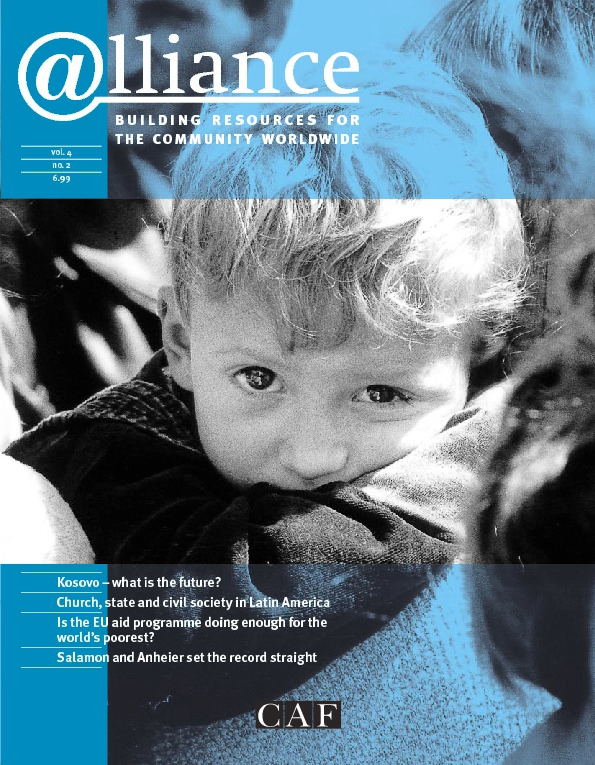The Centro Colombiano de Responsabilidad Empresarial (CCRE) provides a contrasting case. It started life six years ago as a centre for phlanthropy with a mission and objectives similar in many ways to those of CEMEFI. It could have evolved in the direction of CEMEFI. Instead, it narrowed its mission over time to the point at which it more accurately mirrors Business for Social Responsibility in the US or the Ethos Institute in Brazil.
In moving in that direction, it opted not to play a support role for the grantmaking foundation sector. This sector, comprising over a hundred corporate and private foundations, is characterized by its relative maturity compared to other Latin American countries.
The Colombian Center for Philanthropy was created in 1994 by the Fundación Social, one of the largest Colombian private foundations, and the Inter-American Foundation, with the support of the Ford and Kellogg Foundations. In common with CEMEFI it had the goal of promoting a culture of philanthropy, of civic and corporate responsibility. In its early years it focused on ‘diffusing the concept of philanthropy, promoting practices and teaching values of responsibility within businesses … as well as within civil society organizations … while providing guidance for higher education institutions’.
After addressing this broad mission for four years, the Board decided to focus the institution’s efforts on working with the business sector, especially small and medium enterprises, and providing a ‘common space for promoting and generating socially responsible practices in Colombia from a corporate perspective’. To reflect this change of mission, it changed its name to the Colombian Center for Corporate Responsibility.
The Center currently provides training and technical assistance services to private companies. These include evaluation of the current status of social responsibility programmes, support in designing codes of ethics, design of social investment programmes that have measurable impact, and support for the management of such programmes. The Center helps companies establish partnerships with other organizations to ensure their social investment programmes have the maximum impact. It also conducts seminars on corporate responsibility at the request of specific companies and carries out research on CSR.
One concrete result of the work to date has been the creation of the Fundación Dividendo por Colombia. This new foundation manages employee and employer contributions from an initial group of ten companies and channels these resources towards specific programmes and projects.
Why has CCRE’s pattern of development been so different from that of CEMEFI? I would posit a number of possible explanations. First, it didn’t have the same strong local financial and intellectual backing enjoyed by CEMEFI through the generosity of its founder. The Colombian Center for Philanthropy was created with major funding from US foundations. This may have taken away from local philanthropic institutions a sense of ownership and commitment. Second, there already existed regional and national associations of NGOs that were providing many capacity-building services. Third, the well-developed Colombian grantmaking foundation sector was not demanding services.
For more information
http://www.ccre.org.co





Comments (0)